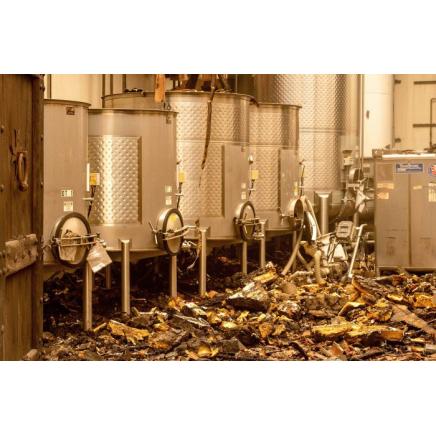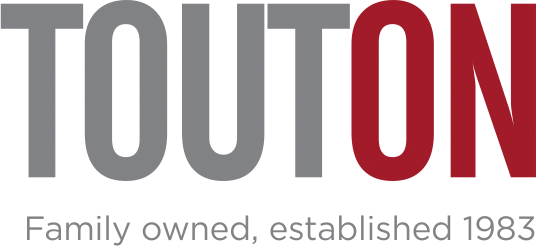Reeling from Historic Wildfires, U.S. Winemakers Ask, ‘What’s Next?’

Reeling from Historic Wildfires, U.S. Winemakers Ask, ‘What’s Next?’
The 2020 wildfires in Northern California, Oregon and Washington affected communities across the Western U.S. and struck a wine industry already staggering from tariffs, the novel coronavirus pandemic and labor shortages.
article originally featured in Beverage Industry Enthusiast Nov 16th 2020
Climate change has contributed to these extreme weather events increasingly becoming the norm. As scientists grapple with causes, and governments with cures, many wine professionals ask, What’s next for wine country? Can the industry adapt to recurring devastation? When the LNU Lightning Complex Fire cut through Northern California in August, winery workers were in the middle of harvest. “The firefighters were performing heroics battling the fires, growers and vintners were performing heroics ensuring the fruit was harvested and vinted without smoke impact,” says Jim Cargill, winemaker at House Family Vineyards, and president of the Santa Cruz Mountains Winegrowers Association. “This was not an easy process, as labs were overwhelmed with testing demands. While initial quality was high, monitoring and testing of the wines will continue as they evolve and mature over the next few months.”In Oregon, residents also fought fires. This year’s blazes were historic, with 16 large wildfires burning at least 100 acres on timber beginning September 7, and expanding from there due to unusually high winds, says Jim Gersbach, public affairs specialist for the Oregon Department of Forestry. “Five of those wildfires grew into megafires within 72 hours, defined as 100,000 acres burned or larger,” Gersbach adds. “Oregon has never experienced a year with more than three megafires in the same year, and never before have we had five burning all at the same time.” Despite battling record-breaking conditions, some Oregon wine professionals were grateful things hadn’t been worse. “Our fire experience was nothing like that of Southern Oregon and coastal regions of Northern California,” says Rollin Soles, owner/winemaker of Willamette Valley’s ROCO Winery. “For that we are thankful. Much will be learned from 2020.”
John Grochau, owner/winemaker of Grochau Cellars, credits the Oregon Wine Board with making crucial information about wildfire management available so quickly. “Time was short, so we skimmed through many studies and decided that our course of action would not be subtraction—low extraction at fermentation, fining with carbon or other products—but by addition,” says Grochau. “Since we aim to make our wines without the additions of inorganic materials, we decided to add untoasted French oak powder to the lots we felt would be most affected by smoke. This type of oak doesn’t add flavor to the wine, instead it is used as an absorbent of off flavors. It also offers a little bit of an addition of tannin to the wine which gives more texture and structure.” Grochau employed more whole cluster fermentation, too. “This is a bit more controversial, as some studies have shown that the addition of stems can increase your smoke affect exposure,” he says. “We chose to do this because once the wine is made, if it proves to have smoke effects that are above threshold levels, our only course of action is by subtraction. Every time you filter or fine a wine you are taking away some of the negative compounds you are targeting, but you are also losing some of what is good in the wine. Because of this, we wanted to ‘build’ a wine of ample body and structure to better hold up to such actions, should we feel the need to utilize these methods.” Washington State winemakers also contended with heavy smoke. “I think we were caught a little bit by surprise this year as far as the thickness and density of the smoke that blew into our valley,” says Matt Austin, owner/winemaker, Grosgrain Vineyards in Walla Walla. “I think that this will serve as a wake-up call to the industry that we need to be better prepared for events like this in the future.”
As the smoke cleared, mitigation commenced. Some producers added crop insurance. “Oregon was not generally insured against issues like this when compared to California or Washington,” says Rob Alstrin, CEO of Adelsheim. “We need to address it at our winery, if not the Oregon wine industry in general.” Others plan to diversify. “I have always been a proponent of owning and farming vineyards sites in a diversity of locations throughout the Northern Willamette Valley,” says Adam Campbell, owner/winemaker at Elk Cove Vineyards. We do this mostly to have estate grown wines coming from the wildly different soils and elevations.” There are other advantages to the practice. “Farming vineyards in different areas and with differing elevations will also help us mitigate wildfire risk,” says Campbell. “In 2020, we have seen very different levels of smoke effect based on proximity to the epicenters of the various fires, and it is another stark reminder to not have all of your eggs in one basket.” Winemakers hope the changes they’ve made to their properties and workflows in response to this year’s emergencies will have long-term benefits. “At this point, our focus is on cleaning up the property and making it safe for our crew,” says Craig Becker, general manager of Somerston Estate in Napa. “The many trees which were burned and were previously considered dangerous have been removed. We’re also implementing certain erosion control measures, including installing waddles and hydro-seeding the hillsides to restore native grasses.”
Becker and his crews are working to increase defensive space around every vineyard structure, not just the winery. “We also have a herd of 400 sheep that graze on the property and will continue to help us manage the growth. It’s an ongoing process, but we will continue to work towards crop control and better forest management.” Calls for collective action highlight the extent of the devastation and need for future contingency plans. “Having lost two vintages due to smoke taint within four years, it is vital for me and other stewards of the land to take further steps to protect the property from the threat of fires,” says Becker. “The real change going forward will come from us, the stakeholders in the game,” he adds. “I’m willing to use my voice and leadership to call a plan into action with fellow vintners. This is much larger than just Somerston.”


